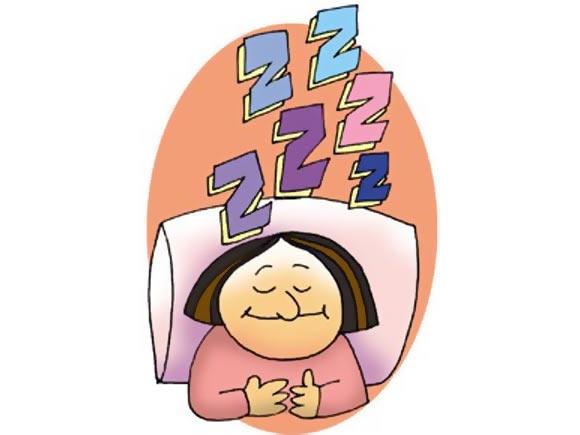 | « Back to article | Print this article |
How to control acid reflux
Making simple lifestyle changes can help you contain the problem.
The most intriguing fact one learns about the stomach is that it secretes acids that are strong enough to burn a hole in your handkerchief. These acids are used by the stomach to break down stuff we eat. However, the acids do not burn our insides only because nature, in its wisdom, has also created secretions that counter them.
The stomach's mucous secretions are also chemically strong enough to line the walls and protect them. However, sometimes these acids come up to the throat in a reflux that is obviously uncomfortable because the rest of the body have no protection about from the corrosive stomach acids. That is when we suffer acid reflux. This happens to those whose oesophagal valve becomes loose for some reason and allows the food to come up the throat.
A large proportion of population suffers acid reflux silently, and suppress symptoms by casually popping over-the-counter medications to control the discomfort. However, there are several lifestyle triggers that we may be unaware of, that cause acid reflux. Being aware of it could go a long way in stopping the corrosive stomach acids from ruining our gullet and our well-being. Also, often we do not make the connection between some other ailment that may be directly related to acid reflux.
How to control acid reflux
Sore throat, voice hoarseness
Did you know that sore throat and acid reflux are related? Often times, when the weather shifts from warm to cold this happens: we continue eating the same amount of food, yet exercise less or sleep more. This can cause a silent acid reflux.
This in turn makes the voice hoarse, leads to sore throat and a dry, wracking cough. Even doctors treat it as if it were a respiratory problem, though the cause is something else altogether!
If you learn to understand the triggers to your acid reflux, you may be able to control this dry cough. If you misdiagnose your problem, all your attempts to heal may actually land you deeper in trouble!
Watch out what we say below for the causes and if you contain them, you will find a relief for your sore throat beyond the lozenges.
How to control acid reflux
Some food triggers
Even though garlic is seen as a digestive, it can trigger acid reflux. Other foods that seem to be healthy but may cause this problem include mint, astringent food stuff such as citrus, tomato.
Diuretic foods like caffeine, even anti-oxidant rich chocolate can be a strict no-no.
Fizzy drinks, alcohol are also culprits. Canned and bottle products also are said to have higher levels of acid in them and can further exacerbate existing acidity.
But the biggest culprit -- rich, spicy food stuff. The stomach has to work more to deal with these. Certain medications are also said to trigger it. It is ideal when receiving a prescription from your doctor for any chronic ailment to check as to the side effects of the medication. Ask for an alternative, or try the yogic remedies given below.
How to control acid reflux
Habits that harm
A sedentary lifestyle, a big culprit in most chronic problems, also lurks behind acid reflux. But more than that, even healthy people who exercise wisely can suffer from this if they make these following mistakes.
When you lie down immediately after a large meal, the digestive tract gets into a go-slow mode and the gravitational drag on your food does the rest of the damage.
Eating large meals, mixing many food items at one meal, having large snacks between meals, eating too close to sleep time are all obvious causes. Any of these habits places a large load on the already over-taxed digestive tract.
Apart from that, though the digestive tract is almost 36-feet long from mouth to anus, it has only so much space to accommodate the food overload. Is it any wonder that the food gets pushed up when the overloaded stomach rebels?
Lying down immediately after a meal also sends confusing signals to the entire digestive system -- imagine if in a factory the assembly line is switched on, but the power is off in certain parts. How can a product come out completely, as intended?
The same thing happens to the digestive tract when you sleep immediately after food.
How to control acid reflux
Yoga solutions
Yogic practices and habits may help contain these problems somewhat. Avoid late meals, eat your dinner between 6 to 8 pm.
If you need to rest between meals, lie on your left side, to activate the right energy channel. This is connected to the digestive tract.
Also use poses like the thunderbolt (vajrasana) and the lying thunderbolt (supta vajrasana) to relieve and/or control acidity and reflux. The latter, by locking the legs, block the downward flow of blood to the legs and push it upwards, towards the digestive tract, helping the metabolism.
How to control acid reflux
Habits that help
If you have acid reflux, it is suggested you keep your head elevated for obvious reasons when sleeping. Use firm pillows under the head.
Chamomile tea is said to contain certain mucliages which help counter the harmful effect of pepsin (which is what causes the damage once it leaves your stomach and swings up into your throat).
Do not exercise immediately after eating. If you exercise and suspect that you have not digested your food or feel bloated, avoid all forward bending positions or inversions. Eat smaller meals or snacks.





